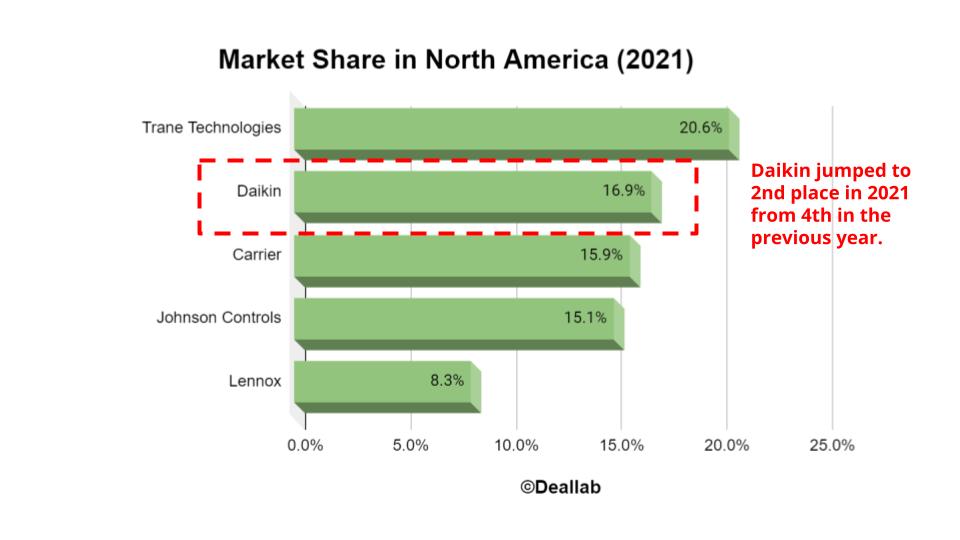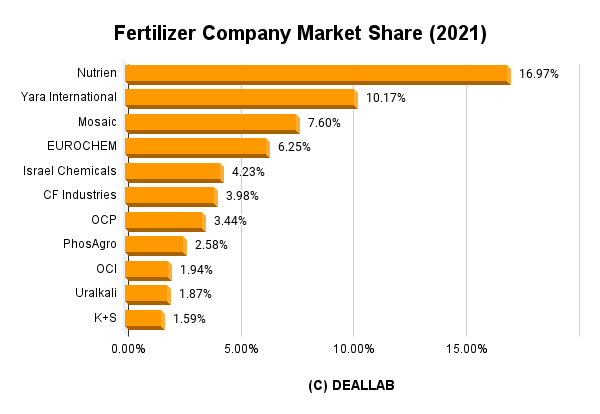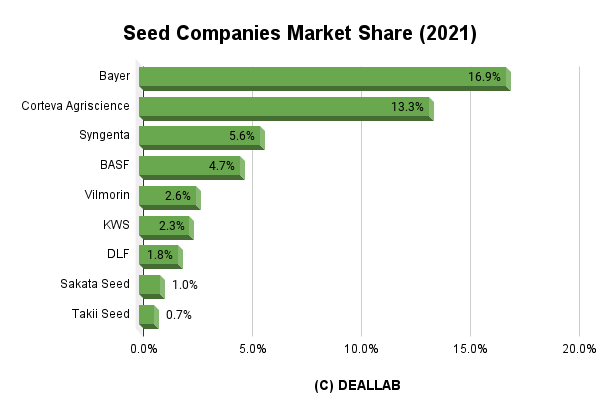This page analyzes the market share of the Japanese steel industry. The trends of the major steel (blast furnace and electric furnace) manufacturers such as Nippon Steel, JFE Steel, Kobe Steel, Hitachi Metals, Daido Steel, Topy Industries, Sanyo Special Steel, Aichi Steel, and Kyoei Steel are also described.
Market share of the Japanese steel in 2020
Using the sales of the steel manufacturers companies listed in the “Latest Global Ranking of Sales by Industry” as the numerator and the market size of the industry described below as the denominator, a simple calculation of market share in 2020 yields the following rankings where Nippon Steel comes in first, followed by JFE and Kobe Steel.
- No.1 Nippon Steel 31.84%
- No.2 JFE Steel 20.05%
- No.3 Kobe Steel 10.05%
- No.4 Hitachi Metals 4.74%
- No.5 Daido Steel 2.64%
- No.6 Topy Industries 1.42%
- No.7 Sanyo Special Steel 1.41%
- No.8 Aichi Steel Corporation 1.30%
- No.9 Kyoei Steel 1.29%
- No.10 Yamato Kogyo 0.98%
- No.11 Tokyo Steel Manufacturing 0.97%
- No.12 Godo Steel 0.90%
- No.13 Nakayama Steel Works 0.73%
- No.14 Mitsubishi Steel 0.63%
- No.15 Osaka Steel Co 0.49%
- No.16 Tokyo Tekko Co 0.32%
- No.17 Chubu Steel Plate Co 0.24%
- No.18 Nippon Koshuha Steel 0.20%
- No.19 Hokuetsu Metal Co 0.12%
- No.20 Tohoku Steel 0.11%
- No.21 Shinhokoku Steel 0.03%
Market Size
This website uses data published by various research companies or associations to calculate the market share of the steel industry, assuming a global market size of 18.6 trillion yen in 2020. The data used for reference is as follows.
According to the 2019 Industry Statistics Table published by the Ministry of Economy, Trade and Industry, the value of manufactured goods shipments in Japan’s steel industry in 2018 was 18.6 trillion yen. According to the Japan Iron and Steel Federation, Japan’s crude steel production in 2020 was 83.194 million tons, down 16.2% from the previous year and the sixth consecutive year of decline.
Major Japanese steel manufacturers
There are three blast furnace manufacturers, about 30 electric furnace manufacturers, and about 10 special steel manufacturers in Japan. For post-war reconstruction, the Japanese government has historically supported the growth of blast furnace manufacturers under the slogan, “Iron is the rice of industry. As a result, blast furnace manufacturers succeeded in producing high quality steel products and contributed to the rapid development of Japan’s automobile industry. High-tensile steel, which has become synonymous with high quality steel, is one example.According to the World Steel Association, in Japan, about 70% of crude steel production is produced by the blast furnace method and about 30% by the electric furnace method. In the future, blast furnaces emit a large amount of carbon dioxide during the manufacturing process, and in view of the ESG trend, it is necessary to consider the construction of hydrogen steel plants and the expansion of crude steel production in electric furnaces, which have a low environmental impact.
Nippon Steel
NIppon Steel is one of Japan’s leading blast furnace manufacturers. Nippon Steel & Sumitomo Metal Corporation was created in 2012 through the merger of Nippon Steel Corporation, Japan’s leading steelmaker, and Sumitomo Metals, Japan’s third largest steelmaker. It changed its trade name to Nippon Steel in April 2019. Japan’s largest producer of crude steel and the third largest in the world. The company is strong in high-tensile and other high-grade steel sheets. Nippon Steel is competing with the onslaught from Chinese steelmakers by scaling up its crude steel production. In 2017, it acquired a controlling stake in Nisshin Steel, which is strong in alloy plating and stainless steel. Aggressive investment in cutting-edge materials, ultra-high-tensile steel and electromagnetic steel sheets used in electric vehicle motors (EV motors). In addition to steelmaking, the company is also involved in engineering, chemicals and materials, and system solutions. It is also focusing on research for a hydrogen steel plant to achieve zero carbon steel. Nippon Steel has temporarily shut down six of its 15 blast furnaces in 2020 due to declining demand, and is now operating nine blast furnaces.
JFE
JFE was formed by the merger of NKK Corporation and Kawasaki Steel Corporation in 2002.JFE is the second largest producer of crude steel in Japan after Nippon Steel Corporation, but has decided to suspend the operation of blast furnaces in the Keihin area in 2020 to meet declining domestic demand. The company is also engaged in trading and engineering businesses.
Kobe Steel
Kobe Steel. is a prestigious steel company that is descended from the former Suzuki Shoten. Harima Shipyard and Machinery Works, one of the origins of Ishikawajima-Harima, was established as a spin-off from Kobe Steel. Although the company has traditionally kept its distance from restructuring in the steel industry, it is still close to Nippon Steel, having formed a comprehensive alliance with it in 2001. In addition to its steel business, the company has diversified into welding, aluminum and copper, machinery, engineering, electric power, construction machinery, and electric power businesses.
It is one of Japan’s leading steel manufacturers. It is the third largest steelmaker in Japan, but has diversified into the aluminum business, construction machinery (Kobelco Construction Machinery), compressors, welding, and electric power (IPP). The company is also involved in welding systems and welding materials. In particular, the company has a leading share of the global market for welding materials for low alloy heat resistance.
Hitachi Metal
Hitachi Metals is a metal materials manufacturer established in 1956. It is a core company of the Hitachi Group. In 2013, Hitachi Metals merged with Hitachi Cable to strengthen its wire and cable business. The company’s businesses include specialty steels, steel rolling rolls, automotive castings, piping equipment, magnetic materials, power electronics, wires, and power harnesses.
Daido Steel
Daido Steel was established in 1950 as a specialized manufacturer of specialty steel. The company’s main products are for the automotive industry, including Nissan and Honda. The company’s business structure is divided into five divisions: specialty steel products, magnetic materials, automotive parts, industrial machinery parts, engineering, and distribution and services. The mainstay specialty steel products include structural steel, bearing steel, stainless steel, and titanium alloys, and in recent years, the company has also been strengthening the high-grade steel field. In recent years, the company has been strengthening its high-grade steel business. It has a high market share in shafts for aircraft engines and magnets for HDD motors. The company is close to Nippon Steel.
Topy Industries
Established in 1934, Topy Industries is an electric furnace steel manufacturer and is also engaged in the manufacture of parts for automobiles and construction machinery . With the acquisition of Asahi Tec in 2018, Topy Industries has surpassed Chuo Precision Industrial to become the leader in commercial vehicle wheels in Japan. It is also one of the largest suppliers of footwear for construction machinery in Japan. The company has strengths in integrated molding, including steel production in electric furnaces. The company is also involved in the power generation business. Nippon Steel Corporation is the largest shareholder, holding approximately 20% of the shares.
Sanyo Special Steel
Sanyo Special Steel, a subsidiary of Nippon Steel, was established in 1935. It is Japan’s leading manufacturer of bearing steel, and acquired Sweden’s Obacco in 2019. The company also produces structural steel, tool steel, and stainless steel.
Aichi Steel Corporation
Aichi Steel Corporation is a major manufacturer of specialty steel for the automotive industry, founded in 1940. It is a member of the Toyota Motor Corporation group. Other products include stainless steel, stamped forgings for automotive parts, sensors, and magnets.
Kyoei Steel
Established in 1947, Kyoei Steel is an electric furnace manufacturer in the Kansai region that focuses on steel products for civil engineering and construction. It is affiliated with the former Sumitomo Metal Industries, and Nippon Steel Corporation is still the largest shareholder. The company is also close to Godo Steel. The company is strong in steel bars for reinforced concrete and also produces threaded bars. The company has an electric furnace in Vietnam.
Yamato Kogyo
Yamato Kogyo is an electric furnace manufacturer whose main product is H-shaped steel. Its focus is on Korea, Thailand and Japan. The company is also involved in track supplies.
Tokyo Steel Manufacturing
Tokyo Steel is an independent company and the largest electric furnace manufacturer in Japan. Its main business is construction materials, and it is characterized by its flexible pricing policy. The company focuses on hot-rolled steel sheets, H-beams, steel sheet piles, and fine wires.
Godo Steel
Godo Steel is an electric furnace manufacturer in which Nippon Steel Corporation is the largest shareholder. Its main products are wire rods, steel bars, and other steel products for construction. It has a cross-shareholding with Kyoei Steel.
Nakayama Steel Works
Nakayama Steel Works is a well-established steel manufacturer engaged in steel sheets and bars. Nippon Steel is the largest shareholder. The company completed its turnaround at the end of fiscal 2016.
Mitsubishi Steel
Mitsubishi Steel is a manufacturer of special steel and springs for construction machinery and automobiles. Mitsubishi Heavy Industries, Ltd. is the largest shareholder.








